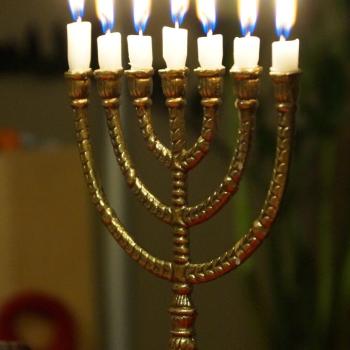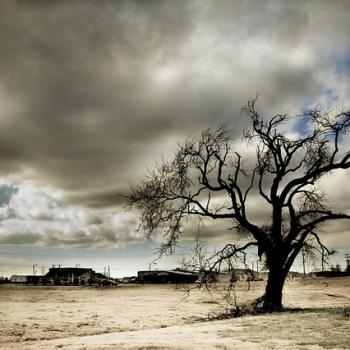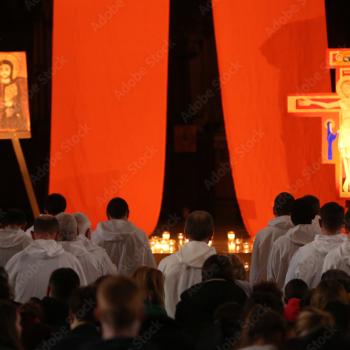The birth of the third child, another son, seals the doom of the people, for he is named "Lo-ammi," "not my people." The YHWH who chose Israel and named them "the people of YHWH," has now rescinded the offer, "for you are not my people, and I am not your God" (Hos. 1:9). The foul family of Hosea and Gomer consists of a prostitute for a wife (who will resume her trade even after the births of her three children—see Hosea 3), and three terrible children, the bloody Jezreel, the one not pitied, and the one not God's people. When I am asked to speak to groups about the Bible and the family, this crowd hardly springs right to mind!
But note verses that intrude on this sunless family scene. Hosea 1:7 reads: "I will have pity on the house of Judah, and I will save them by YHWH their God." The deep irony here is that the verb "save" is precisely hoshea, the very name of the prophet himself. And then there is Hosea 1:10: "Yet the number of the people of Israel shall be like the sand of the sea which can be neither measured nor numbered. In the very place where it was said, 'You are not my people,' it shall be said to them, 'Children of the living God.'" We Bible scholars have been quick to say, "well, these two verses are quite obviously later additions to the harsh words of the 8th-century prophet whose obvious intent was to blast the idolatrous Israelites with the withering breath of an enraged YHWH." It well may be that verses 7 and 10 are later additions, but the more important point is: just why were they added?
Was it only because some later Judean editor wanted all to know that he and his southern people were certainly not as bad as those heathen Israelites from the north? It could be. But what if a deeper theological claim is being made here. What if the final collectors of the Bible's treasures did not ever wish to suggest that the loving God of Israel, the God of the womb, the God whose anger was slow to come, whose care for the people never failed, was in fact the only God that there is, and that no matter what we idol lovers do, no matter how oppressive we are to our neighbors, that God will still be there for us and for them. Even the harsh prophet Hosea, along with his prophetic brothers—Amos, Isaiah, Micah, Jeremiah, and Ezekiel—knew that in the end YHWH loved and loves YHWH's people. As painful and difficult as the metaphor of Gomer is, she holds the key to YHWH in her inconstant life: God will never forsake us, no matter what.





